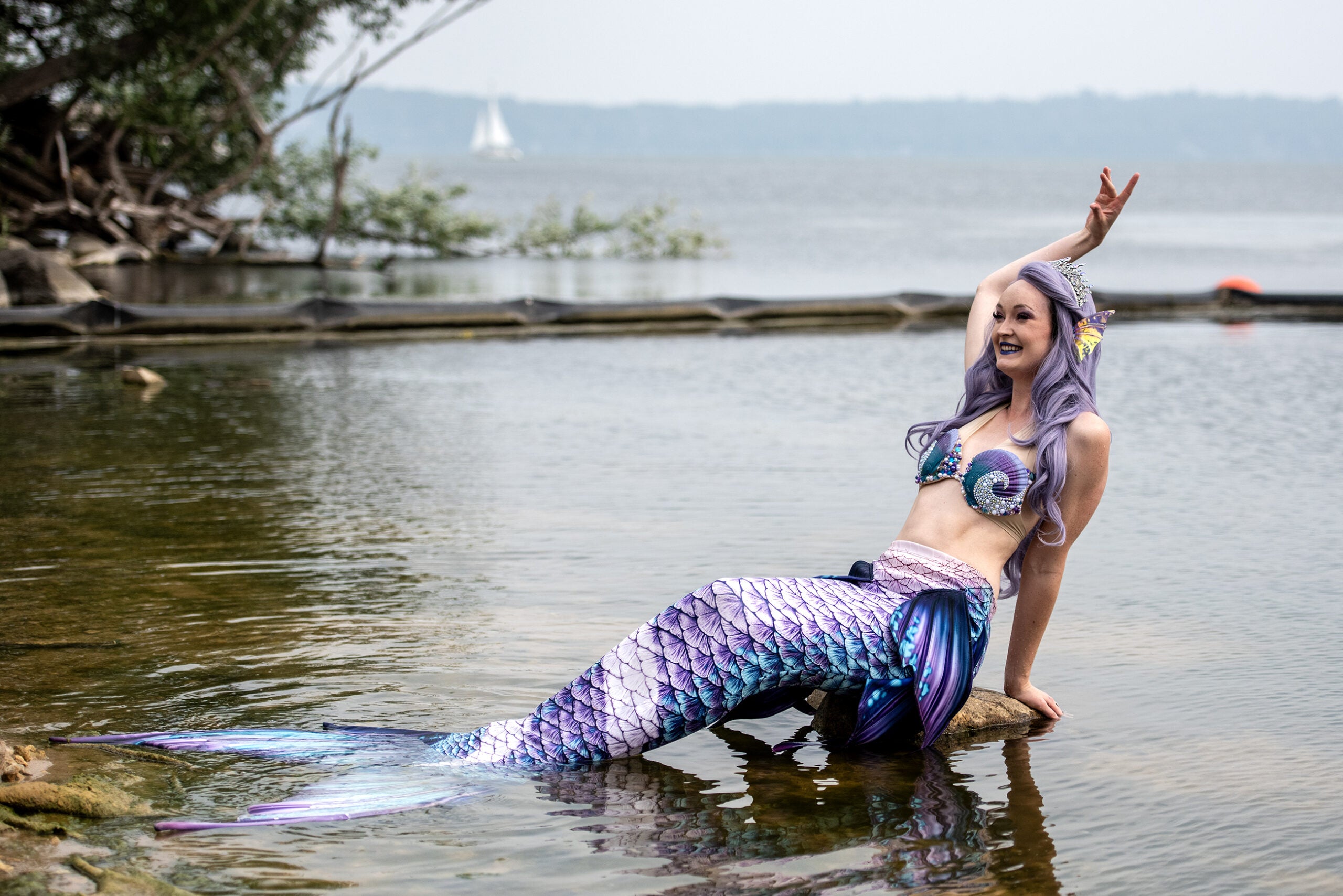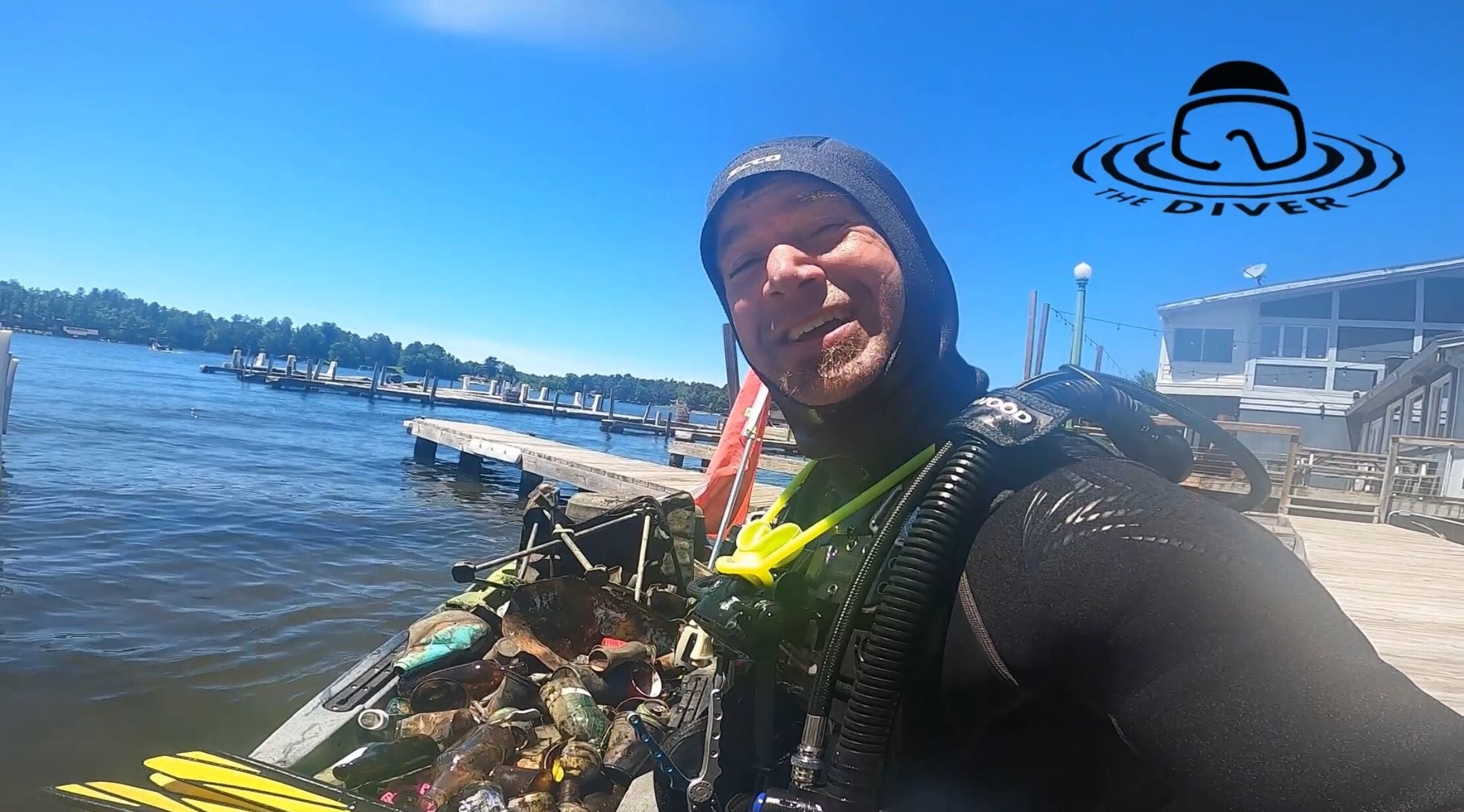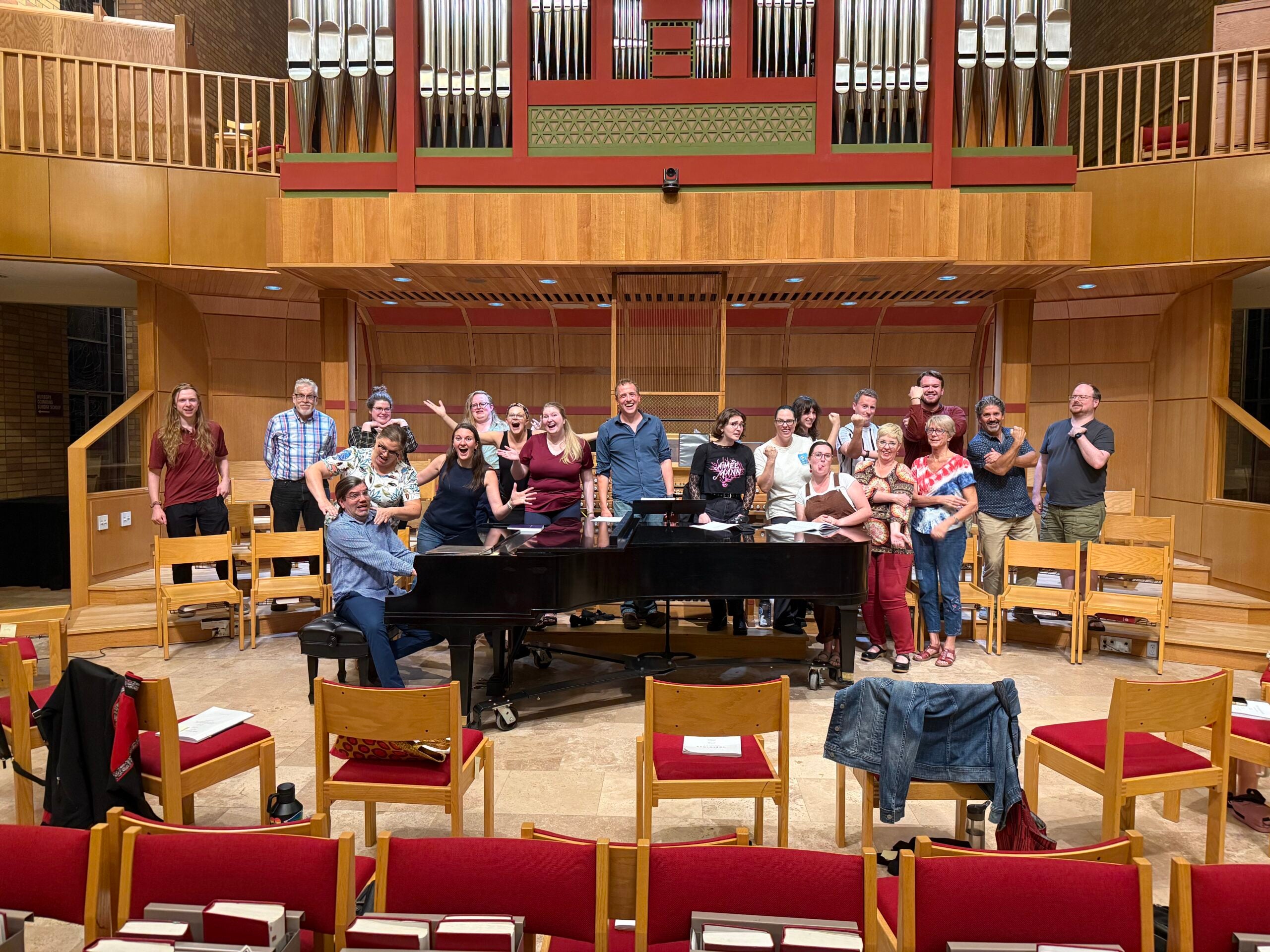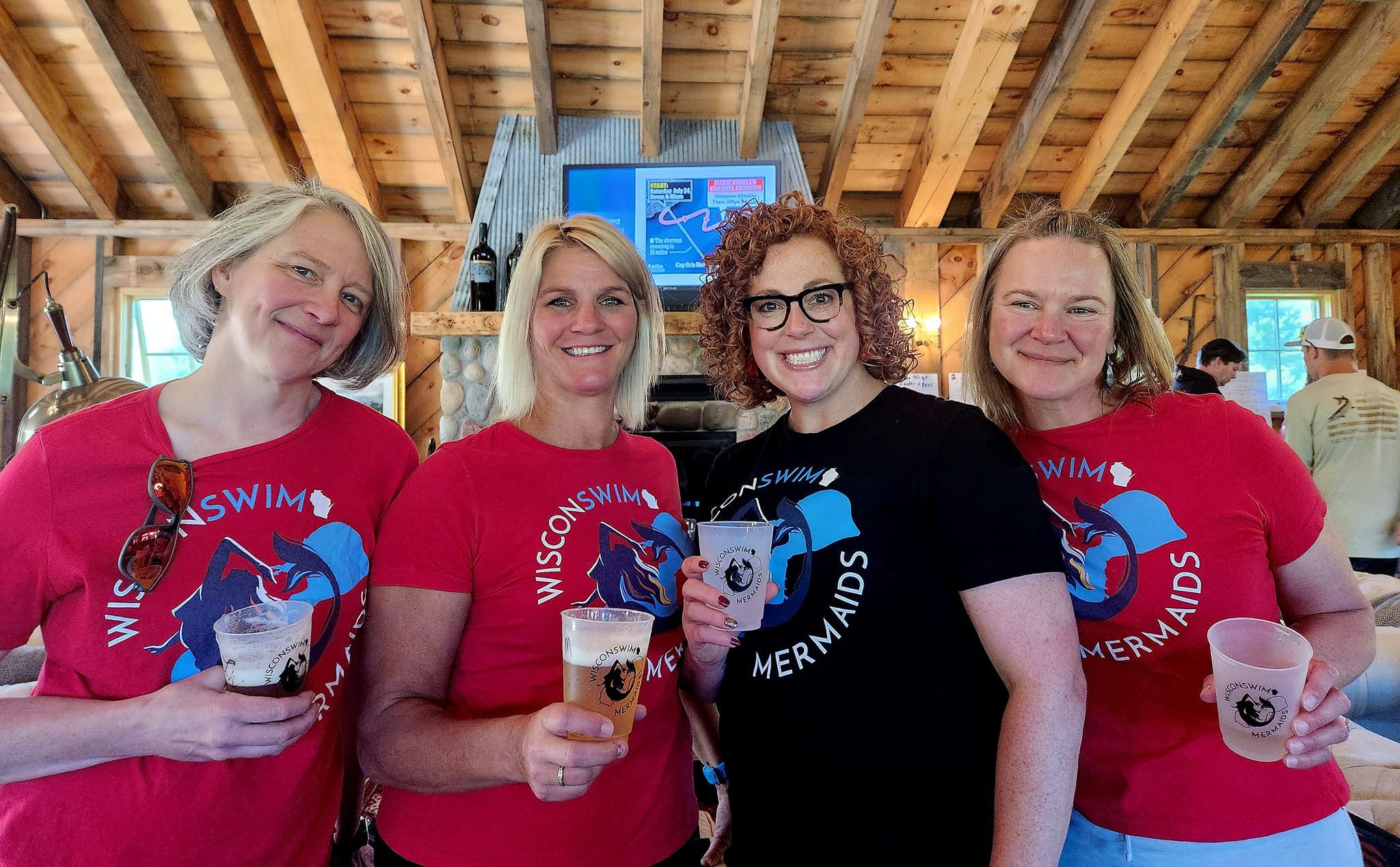Just about every day after school and on weekends, Echo would go to the St. Croix River in northwestern Wisconsin and find peace.
They would tie their feet together with boat rope, put on their grandmother’s flippers and transform into a mermaid. They would pretend to be a part of a world below the surface.
“Everyone thought I was weird,” Echo said. “Now it’s my job.”
Stay informed on the latest news
Sign up for WPR’s email newsletter.
Echo travels across the state with a purple and blue tail made of silicone, performing at aquariums, festivals and parties. They teach kids how to swim safely with mermaid tails and about conserving the Great Lakes.
Mermaid entertainers and educators like Echo are getting wider attention this summer. Disney’s live-action movie “The Little Mermaid” and a Netflix series “MerPeople” are bringing mermaids further into view. That has meant added work opportunities but also stiffer competition, Echo said.
Echo’s stage name is “Mermaid Echo.” They are part of the Netflix series and have built an audience of about 870,000 followers on TikTok. In 2021, they became the Midwest’s first mermaid instructor certified by the Professional Association of Diving Instructors.
But while more people are watching Echo, they miss a lot about the challenges of working as a mermaid. Recently sitting in their car after teaching a mermaid course in Middleton, Echo called their work the most fulfilling they’ve had. It has also been the most difficult.
“Everything about it rides on my shoulders. My own success, my own livelihood, buying my groceries, paying my rent — that all resides on my ability to book classes and gigs,” Echo said. “It’s really hard. There are days where I come home, and I can’t talk to anyone for hours and hours.”
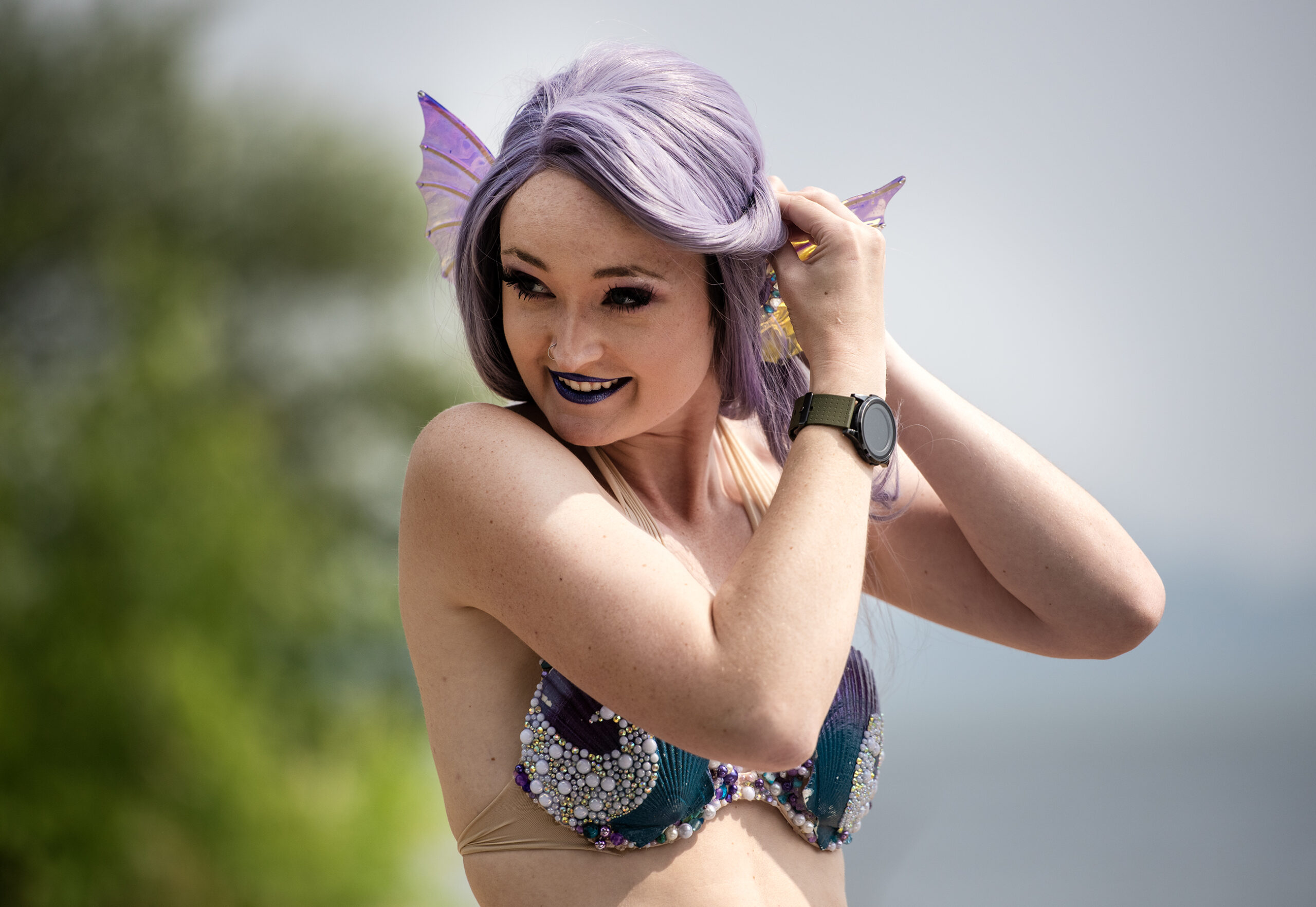
‘It was a slog’
An ankle injury during childhood led Echo to become more comfortable swimming like a mermaid.
While recovering from corrective surgery and receiving physical therapy, Echo discovered they could use a monofin while swimming to exercise. Echo’s therapist endorsed the method, comparing it to taping a broken finger to another to help heal.
After their recovery, Echo began pursuing work as a professional mermaid based in Hudson. They received awkward glances and questions. People threw business cards in the trash and spit at their feet, Echo said. A series of unsuccessful cold calls once moved Echo to tears.
“It was a slog,” Echo said. “And it was brutal.”
Echo worked at restaurants to save up for a $1,500 silicone tail. Slowly, the business grew. Echo’s mom worked as a teacher in Minneapolis and brought Echo in to read books to the children. Echo met parents who hired them to appear at birthday parties.
Nearly a decade ago at age 17, Echo launched their LLC. Today, the day-to-day grind mirrors other jobs without tails. Making phone calls. Booking jobs. Emails. Crafting marketing campaigns. Prep work. Driving to the next gig. More emails.
Echo learned training and certification is essential to be a professional mermaid. Remember how Echo would tie their feet together with boat rope?
“Now that I am an instructor, that is the absolute last thing you should do when it comes to safety,” Echo said.
Echo’s silicone tail is 45 pounds dry and 60 pounds wet. People can drown, they warn.
“Tails are not toys. They are a tool, and we have to learn how to use them safely in order to have fun, right?” Echo said. “You really have to know what you’re doing. You wouldn’t get in a car without having a driver’s license.”
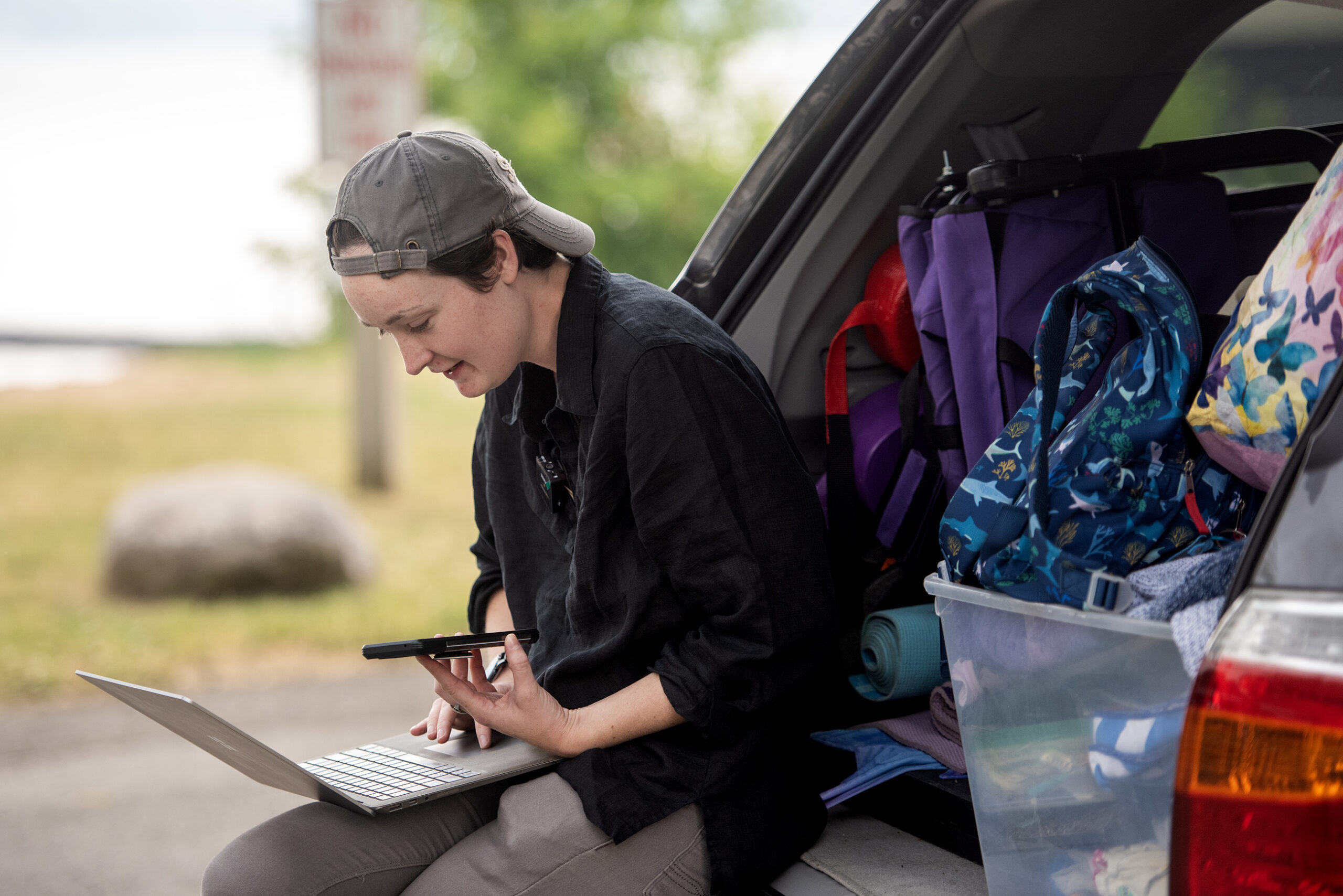
Teaching backflips and conservation
At a recent mermaid certification course in Middleton, Melissa Thompson brought her 11-year-old daughter, Eve, to learn about safely using her new tail. Thompson had heard Echo appear on Wisconsin Public Radio’s “The Morning Show” and reached out to Echo for help.
Eve says the course was fun. Her favorite part was learning to backflip and somersault underwater. Thompson said she was happy to see Echo empower Eve to complete a physically challenging course.
While most of Echo’s students are adults, they love teaching kids. Echo lit up when Eve performed her new underwater tricks. One piece of advice: Echo advised her to follow the flow of the water. If the water is pushing you one way, go with it — even if it doesn’t feel right at first.
Another focus of Echo’s work, particularly at Discovery World in Milwaukee, is promoting conservation. While pursuing a master’s degree in freshwater sciences at the University of Wisconsin-Milwaukee, Echo works for a nonprofit that connects Great Lakes communities with resources in hopes of building coastal resiliency.
“We need to be focusing more funding, more policy (and) more attention on freshwater,” Echo said.
More people are understanding that performing as a mermaid — the “mersona,” as Echo calls it — is a way to connect people with water. Echo is under no disillusion of being a real mermaid.
“I remember a lot of frustration, going, ‘Why don’t they get it? Why don’t they just see what I see in the kids’ eyes when they see a mermaid for the first time?’” Echo said. “Why can’t people just understand that? Why is it so hard for adults to get it, but it takes kids half a second and they’re sold?”
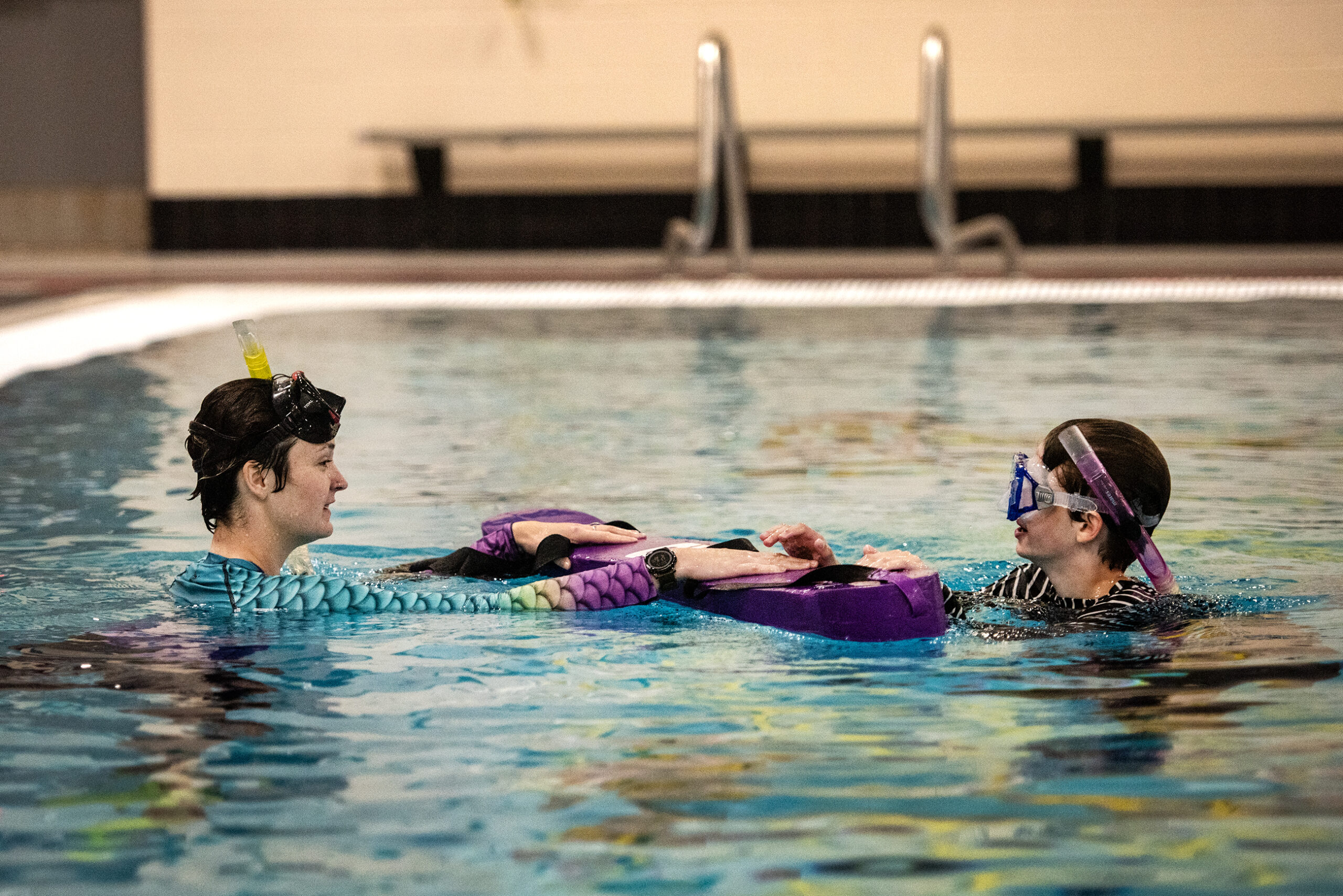
Keeping faith
Echo felt out of place as a queer kid who liked to dress up as a mermaid. But being underwater felt different.
“No one can talk to you,” Echo said. “No one can tell you that you’re strange. You can’t hear anyone else. It’s silent. It’s dark. It’s comfortable.”
Echo is now a board member of Mermaid at any Age, a group that promotes aquatic conservation, water safety and inclusivity. After finishing the certification course in Middleton, Echo said remaining a leader in the industry means continuing to perform better than the best.
“You have to be constantly moving, growing and changing. I’ve always loved that part of owning a small business, but it does catch up to you at times,” they said.
On a recent Saturday, Echo woke up at 6 a.m. in Milwaukee. Their hair and makeup took about two hours. They were in a tank by 11 a.m. They left around 2 p.m. and then started driving to Chippewa Falls — about four or five hours away. Echo arrived at about 10 p.m., set up their tent and camped out. Twelve hours later, they began another performance.
“When do you eat? When do you take a shower? When do you sleep?” Echo said. “These basic self-care items really do fall to the wayside when you’re just trying to make your shows as much as you can and make money.”
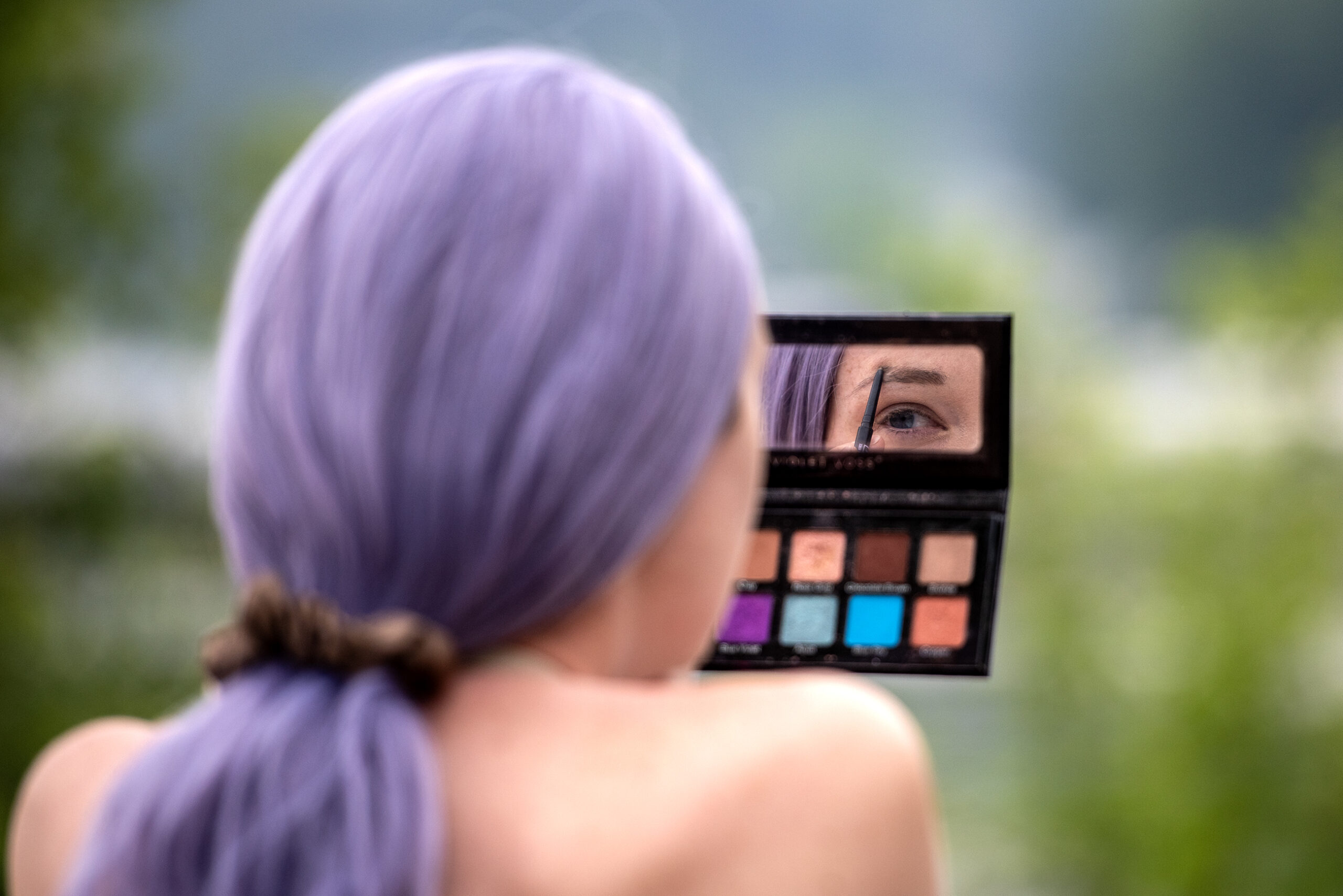
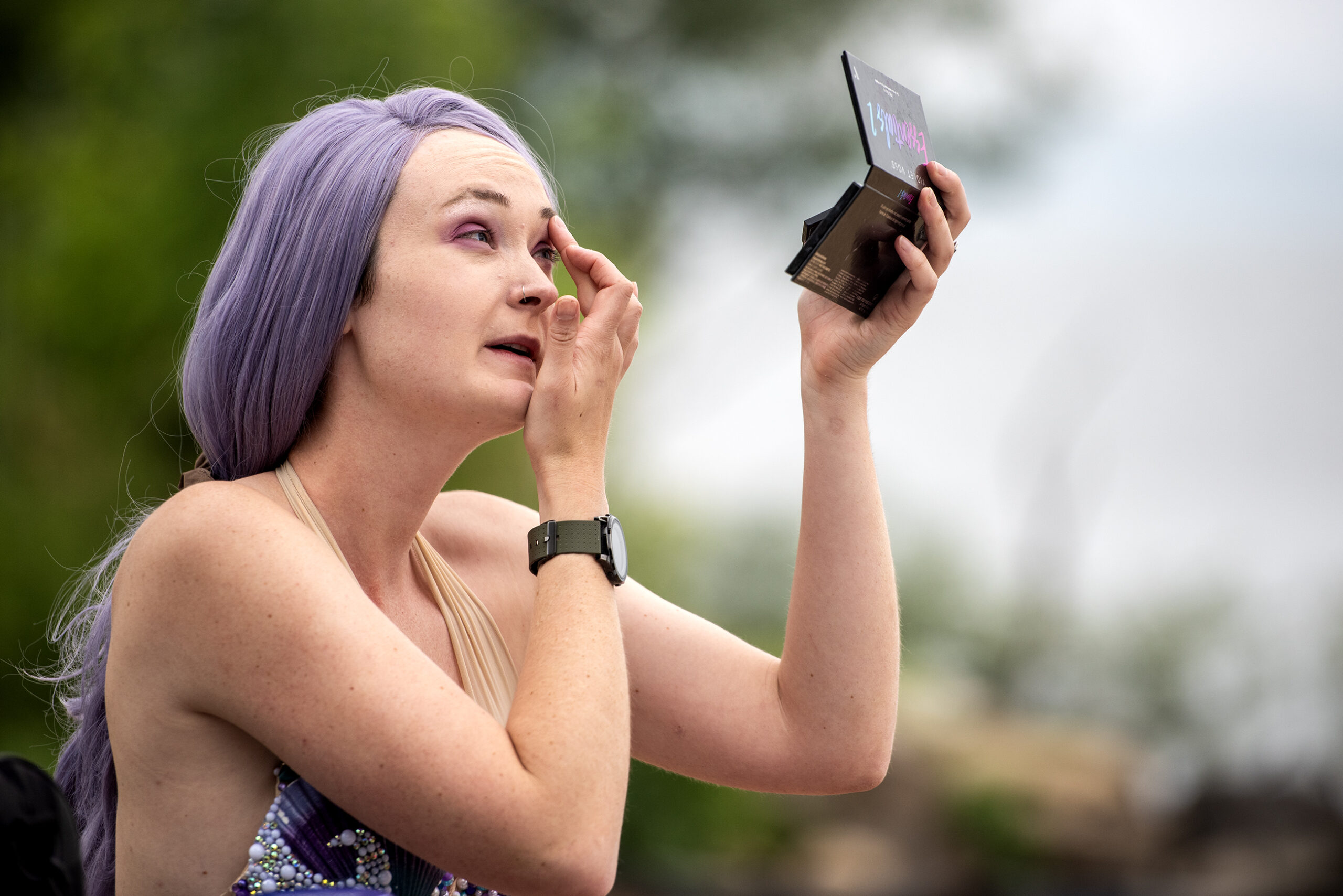
Mermaid shows might look extravagant. That’s good, Echo said, because it means the hours of makeup and costume design are paying off. But the lifestyle of being a professional mermaid at parties and shows can feel less glamorous.
Echo sometimes sits on a rock for hours with little mobility. A safety team helps Echo in and out of the water that can be quite chilly. With little or no visibility in water, Echo has hit their head on the glass walls of an aquarium tank.
“I like to say that if you think your job is hard, try doing it blind (and) hypothermic,” Echo said. “You can’t hear anything, and you’re very, very cold.”
Echo describes this career as a leap of faith, comparing it to going underwater without sight or sound as guidance.
“I mostly just look back at myself five years ago and go, ‘I want to give you a hug. You are fighting so much. It’s OK that not everyone understands, and it’s OK that everyone thinks you’re crazy and no one thinks you should continue this,” Echo said. “But keep going. Keep going. It’s going to be alright … just keep going.”
If you go:
- What: Mermaid Echo’s latest show, an interactive underwater play where kids become aquatic researchers trying to solve a mystery.
- Where: Discovery World in Milwaukee.
- When: Shows at 11 a.m. and 12:30 p.m. on Saturday, July 15.
- Tickets: General admission into Discovery World, prices listed here. Echo’s show is first-come, first-serve.
Wisconsin Public Radio, © Copyright 2025, Board of Regents of the University of Wisconsin System and Wisconsin Educational Communications Board.
